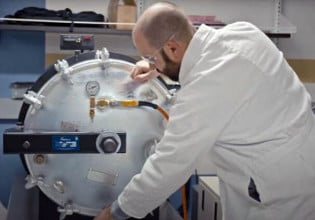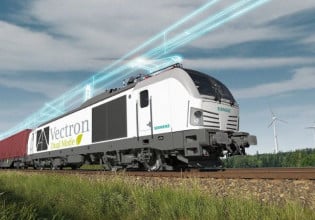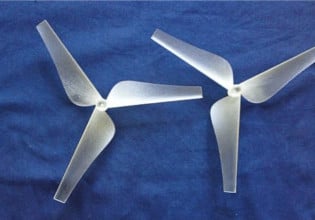Philips Develops LED Replacement For Common Household Bulb For DOE Competition
The U.S. Department of Energy (DOE) announced that the Bright Tomorrow Lighting Prize (L Prize) competition has received its first entrant, a product from Philips Electronics. Philips has developed, manufactured and will bring to market an LED replacement for the common 60W incandescent light bulb. Philips developed this product in response to DOE’s industry-wide challenge, and was recognized by DOE as the first company to submit an entry.
DOE launched the L Prize initiative to spur development of high-quality, high-efficiency LED replacements for the common light bulb. Every year it is estimated that more than 425 million 60W incandescent light bulbs are sold in the United States alone, representing approximately 50% of the domestic incandescent light bulb market. According to DOE, an LED replacement for this could save 34 terawatt-hours of electricity in one year, enough to power the lights of 17.4 million U.S. households. It would also avoid 5.6 million metric tons of carbon emissions annually.
"The race is on," said DOE Solid-State Lighting Program Manager Jim Brodrick. "Philips is the first to submit a formal L Prize entry, demonstrating their leadership and corporate commitment to energy conservation in lighting. Philips’ entry into the competition is a clear signal that massive energy savings from solid-state lighting are within our grasp. The field is wide-open, and we hope to see more entries from both large and small manufacturers."
Established through the Energy Independence and Security Act of 2007, the L Prize offers substantial rewards for the first manufacturer to meet its very demanding requirements –ensuring that performance, quality, lifetime, cost and availability meet expectations for widespread adoption and mass manufacturing. In addition to the significant cash prize, the first manufacturer to fully meet the competition’s requirements will also be in consideration for federal purchasing agreements, utility programs and other incentives.
"Philips is confident that the product submitted meets or exceeds all of the criteria for the L Prize. By being the first to enter this very tough competition, Philips has demonstrated its commitment once again to playing a leading global role in lighting innovation and energy conservation," said Rudy Provoost, CEO of Philips Lighting. "We applaud the work of the U.S. government to accelerate development of high quality and reliable LED products that meet real-world user demands, which is critical as this technology gains mainstream acceptance. By holding manufacturers to very high standards, as an entire industry we can reduce energy use on a large scale without sacrificing the quality of light we expect."
Required metrics for the 60W incandescent LED replacement, as laid out by DOE, include: efficacy of more than 90 lumens per watt, which exceeds the efficiency of all incandescent and most compact fluorescent sources today, which range from 10 to 60 lumens per watt; energy consumption of less than 10W as compared to a 60W incandescent; output of more than 900 lumens, equivalent to a 60W incandescent light bulb; lifetime of more than 25,000 hours, which is 25X greater than a typical incandescent bulb; Color Rendering Index (CRI) greater than 90, which is a high measure of lighting quality; and color temperature between 2700 – 3000 Kelvin, which is "warm" white light comparable to that of incandescent sources.






